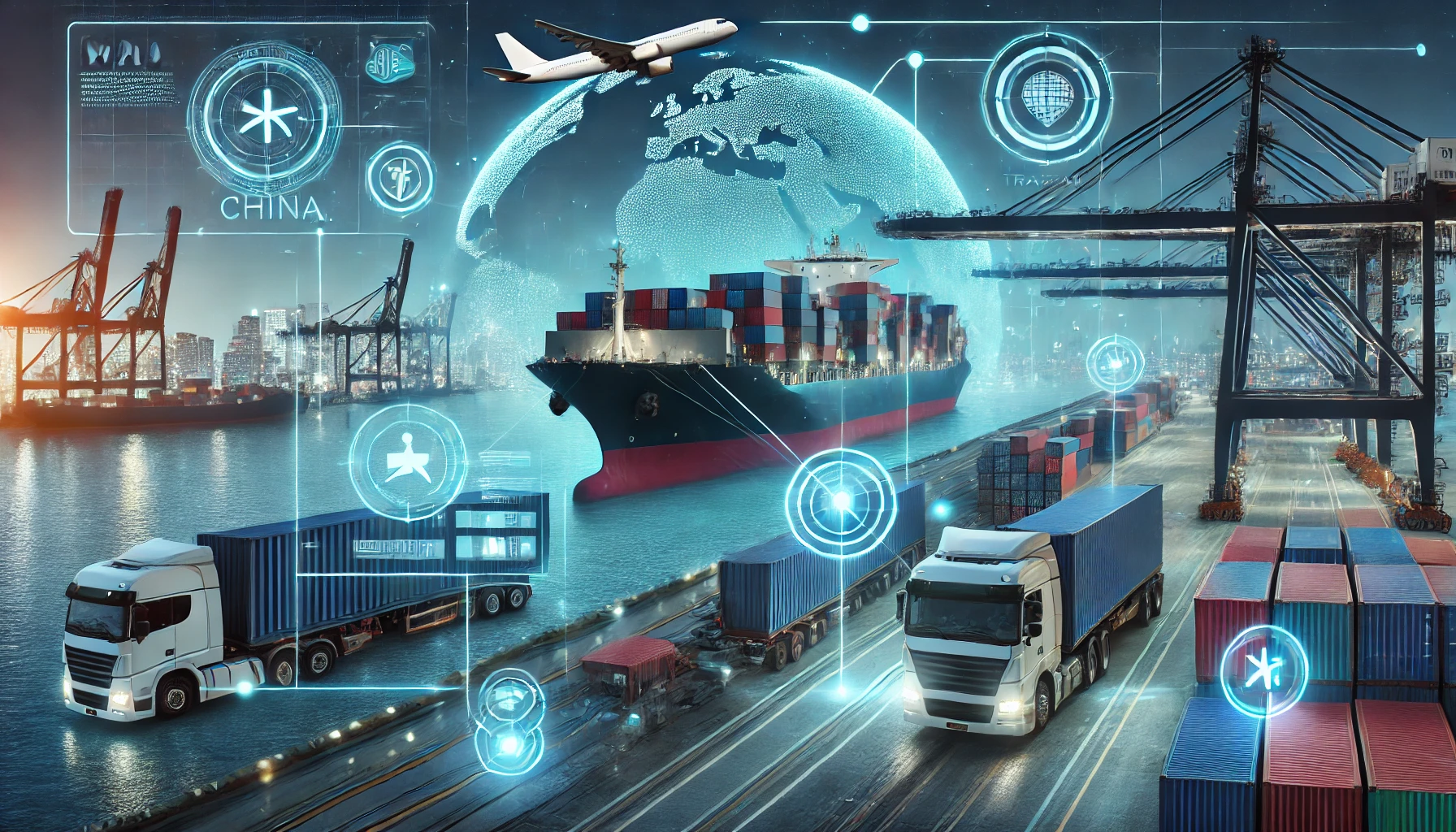- By China Top Freight
- January 2, 2025
- International Transportation News
December 31, 2024
Source: Logistics Baba
In today’s rapidly evolving world, artificial intelligence (AI) and automation are gradually reshaping industries, including shipping. Many shipping companies are integrating AI into their operations.
However, concerns persist about AI replacing human labor. Despite experts emphasizing the productivity benefits of AI, the industry’s acceptance of AI remains a challenge.
This year, a shipping company laid off staff as part of its push for AI and automation. While only a small portion of employees were affected, they received generous compensation. The company aims to enhance global competitiveness through AI but is also expanding its onshore workforce to implement AI technology.
Industry experts argue that these layoffs are not for cost-saving purposes but part of a strategic move.
A McKinsey report predicts that by 2045, half of all jobs will be automated, a decade earlier than expected. Furthermore, generative AI (AI systems capable of generating text, images, or other media) holds significant commercial potential, offering annual revenues between $2.6 trillion and $4.4 trillion.
By 2040, generative AI is expected to boost labor productivity by 0.1% to 0.6% annually, and combined with other technologies, work automation could improve productivity by 0.5% to 3.4%.
This year, the shipping industry achieved significant automation milestones, especially in China, where port automation has surged, setting world records.
However, growing automation has raised concerns among workers. A recent strike at East Coast U.S. ports was largely driven by fears of port automation. The International Longshoremen’s Association (ILA) views automation as a threat to high-paying jobs, while the U.S. Maritime Alliance (USMX) argues that automation will boost efficiency, create more jobs, and increase wages. Negotiations are still ongoing.
The industry’s drive for efficiency extends beyond automated ports to the pursuit of “smart shipyards,” with South Korean shipyards leading the charge. HD Hyundai, in particular, is implementing “robotic labor” initiatives to reduce reliance on human workers.
In November, HD Hyundai announced plans to build the world’s leading “smart autonomous shipyard” by 2030, integrating ship design, production, and robotics into a single platform. This platform will not only streamline automation but also cut production time by 30%.
By using collaborative robots to collect real-time data and improve welding quality, HD Hyundai aims to optimize production. As Vice President Liu Shangxian explained, robots maintain consistent quality, ensuring uniformity even after thousands of welds.
The company also claimed that robots will reduce training time for new workers, enabling them to start working on LNG ship production with just 1-2 days of training, compared to the traditional 6-month training period for manual welders. However, this may result in a reduced skill gap between experienced and novice workers.
Liu added that with labor shortages and an aging workforce, robots are crucial to maintaining competitiveness. Robots can bridge the gap between experienced workers and the next generation, ensuring that technical knowledge and skills are preserved.
It’s important to note that AI and automation cannot fully replace human workers.
As the industry moves toward greater intelligence, while some jobs may be lost, new opportunities supporting and maintaining AI systems will arise. In shipping, AI might replace traditional maritime roles but will create new positions to integrate AI technology into operations.
Liu Gang, Chief Economist at China’s New Generation Artificial Intelligence Development Strategy Research Institute, stated: “Every major technological innovation leads to frictional unemployment. However, as people adapt, learn, and update their knowledge, this issue will resolve itself over time.”
Overall, companies should help employees acquire new skills to maximize AI’s potential while minimizing job loss. As technology continues to develop, AI will play a more critical role in shaping a smarter and more sustainable shipping industry.
Finding the right balance between AI, automation, and human labor remains a key challenge for the future.
China Top Freight Disclaimer: This article is reproduced from other media. The views and information presented do not necessarily reflect the views of the publisher.


